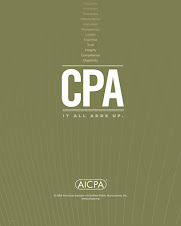Larry, I know you have answered this question before, but I can't seem to find it on your blog anywhere. How much can I pay my 2 kids a year for odd jobs around the shop and not have to pay taxes on them? They do odd jobs such as folding towels, dusting and cleaning. Also, how do I go about doing the tax forms on them, do I just leave the Social Security and Medicare spots blank on the W2's? Thank you for any info you can give me.
Shannon
Shannon, money that you give to your children, grandchildren, or even parents is a deductible business expense if you pay them to perform bona fide work for your business, and pay them reasonable compensation for that work.
Would I rather give my 12 year old son Ryan an allowance or a wage?
Let’s do the math. If I am in a 33% bracket I need to make $30, give the government $10 which leaves me $20 to give to my son. On the other hand, if I give him a wage of $20, I have a $6.60 tax deduction so effectively I only am paying him $13.40 after taxes. It is a no brainer.
At that point, it isn’t allowance. It’s wages. If you’re hiring your kids, they might even learn not to treat you like “The First National Bank of Mom and Dad”:
Your child can earn up to the standard deduction for single taxpayers ($5,700 for 2009) before they owe tax on their income. The next $8,350 is taxed at just 10%. Earned income isn't subject to the “kiddie tax” for children under 19 (or dependent full-time students under age 24). Other family employees pay tax at their regular rate.
The Tax Court approves wages for children as young as 7.
Your family employee’s work should be directly related to your business.
Pay your employee (child) a reasonable wage for their age and the service they perform. Their wages should be similar to amounts paid for similar services by similar businesses under similar circumstances—with adjustments made for their age and experience.
To verify your deduction and audit-proof your return, keep a time sheet showing the dates, hours, and services performed. The more you pay, the better time records you should have.
Pay your child by check, and deposit the check in an account in the child's name. This can be a Roth IRA, Section 529 college savings plan, or custodial account.
You can’t use custodial assets for your obligations of parental support; however, parental support doesn’t include “extras” like providing a bike, saving for a car, prom dresses, summer camps, and similar expenses.
If your business is taxed as a proprietorship or partnership, you don’t owe Social Security or Medicare taxes on your child’s wages until they reach age 18. You don’t owe unemployment tax until they reach age 21.
Hiring family members to help work in your business also lets you establish employee benefit programs such as a medical expense reimbursement plan, education assistance plan, and retirement plans.
The IRS always scrutinizes year-end transactions so I always recommend paying the child monthly to avoid IRS questions.
In summary, by paying your children for working you are able to effectively deduct expenses that might be considered personal. If you have any further questions let me know.
Larry Kopsa CPA


